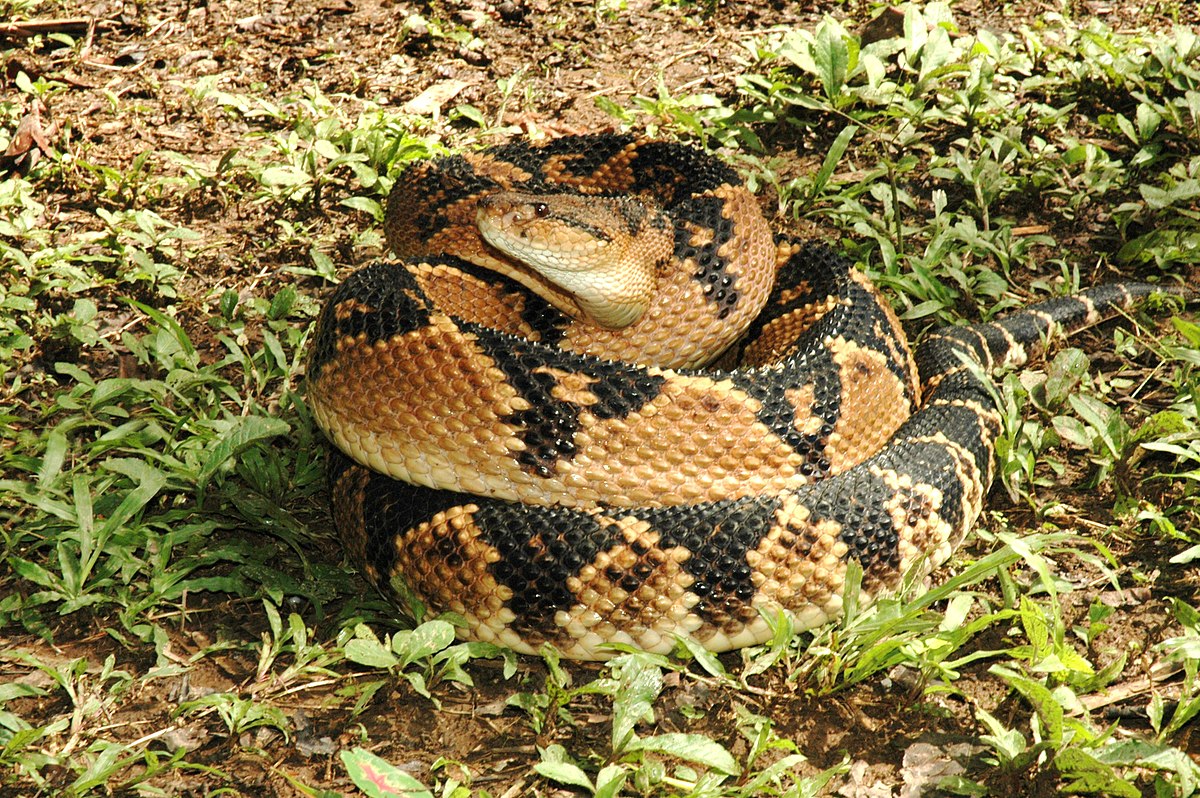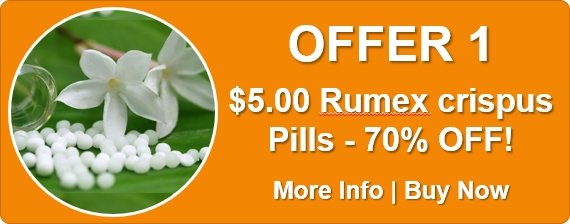Know Your Remedy: Lachesis

Common Names: Bushmaster snake; surucucu snake.
General Information
Lachesis Muta (Lach.) is prepared from the venom of the bushmaster snake. Those who need Lachesis experience an inner restlessness and agitation which results in extreme talkativeness, sarcasm, vivid imaginings, and passionate, intense behaviours. They are affected by heat, easily becoming hot. Skin or eruptions may develop a purplish discoloration. Physical complaints arise on the left side of the body and symptoms improve following a discharge, but worsen if discharges are suppressed. They tend to be hypersexual. Mental – emotional and physical symptoms worsen during or after waking from sleep and alcohol may be craved.
Mental-emotional Symptoms
- Passionate and inclined to jealousy.
- Suspicious – even to the point of paranoia.
- Very talkative. Sarcastic.
- Aggressive and prone to hatred – seeks revenge.
Headaches and Migraines
- Pulsating or bursting headaches.
- Pain in the top of the head or on the left side.
Throat Problems
- Left-sided throat pain or pharyngitis.
- Difficulty in swallowing, especially saliva and other liquids.
- Dislike of high or tight collars, or throat being touched.
Respiratory and Chest Problems
- Asthma.
- Asthma following jealousy.
- Palpitations or chest oppression worsened by lying on the left side.
Menstrual and Menopausal Symptoms
- Hormonal disturbances.
- Premenstrual syndrome with irritability, depression, jealousy, and headache.
- Hot flushes at the time of menopause.
Sleep Problems
- Sleep is impossible on the left side.
- Sudden waking with a feeling of suffocation, especially when first falling asleep.
- Types of sleep apnoea.
For Pets
- Extreme jealousy.
- Bluish discoloration of bites.
- Hormonal difficulties with heightened sensitivity to heat.
Where do I find it?
Lachesis Muta (Lach.) is available from our online store as a single remedy, and as part of the following Complex (combination remedy): Sore Throat.
Important
While above self-limiting or acute complaints are suitable for home treatment also contact your healthcare provider during emergency situations or if symptoms worsen or fail to improve. Chronic or persistent complaints, which may or may not be mentioned above, require a different treatment and dosage protocol so are best managed by a qualified homeopath for good results.
Dosage Instructions (suitable for babies to adults)
For the home treatment of acute and self-limiting complaints take one pill or five drops of the remedy every 1 minute to 4 hours (1 minute for intense or emergency symptoms (plus seek emergency help), 4 hours for milder ones). Once an improvement is noticed, stop dosing and repeat the remedy only if symptoms return. If there is no improvement at all by three doses, choose a different remedy or seek professional guidance.
Note: Chronic symptoms or complaints require a course of professional treatment by a qualified homeopath to manage the changes in potencies and remedies may be required.
More Information
Guidelines on which potency to use
From Past Masters
Homeopathy is a 200-year system of medicine. Early medical homeopaths recorded initial provings, remedy relationships, and their early experiences with each remedy in great detail.
These writings were then shared with others to advance homeopathic knowledge and practice.
Today, these same writings give a fascinating insight into the symptoms and clinical conditions for which each remedy was used.
The following extract, with minor editing, is one example.
Leaders In Homoeopathic Therapeutics by E. B. NASH M.D.
LACHESIS.
Feels very sad and despondent, < after sleeping, or in the morning.
Enemy of all constriction; must loosen everything (neck, chest, throat, abdomen, etc.)
Left-sided affections generally, especially throat, chest, ovaries.
Inflamed parts very tender to touch and of bluish or dark color.
Great weakness and trembling; tongue trembles when protruding it; catches under the teeth (lower).
Blood decomposes, breaks down, hæmorrhages; blood uncoagulable; ulcers and even slight wounds bleed profusely.
Modalities: < at climacteric; touch, constriction or pressure, sun-heat, after sleeping; > after discharges (suppressed or delayed discharges).
Many complains connected with the menopause: hot flushes, hot sweats, burning vertex headaches, hæmorrhoids, hæmorrhages.
Great physical and mental exhaustion; trembling in whole body; would constantly sink from weakness.
* * * * *
To Dr. Constantine Hering belongs the honor of introducing and developing the wonderful medicinal properties of this snake poison. If he had never done anything beside this for medicine, the world would owe him an everlasting debt of gratitude. It alone would immortalize him. All this, and more; notwithstanding,
Chas. Hempel wrote in his first volume of Materia Medica: “In spite of every effort to the contrary, the conviction has gradually forced itself upon my mind that the pretended pathogenesis of Lachesis, which has emanated from Dr. Hering’s otherwise meritorius and highly praiseworthy efforts, is a great delusion, and that with the exception of the poisonous effects with which this publication is abundantly mingled the balance of the symptoms are unreliable.” Hempel modified his views somewhat, I think, in later editions.
Now, it is interesting to note that in Allen’s Encyclopædia of Pure Materia Medica, the verified, and especially the black-typed symptoms, almost all of them, are verifications of provings made with the 30th potency. It is also significant that the provings of Hahnemann’s polycrest remedies, mostly made with the potencies, are among the most useful and reliable we have to-day.
Some have sought to destroy confidence in the provings of all remedies which are made with the 30th potencies and upwards; not only that, but in their power to cure even when the provings were made with cruder preparations.
With us, who know the value of these potencies, all such efforts only excite pity. But many who do not know are misled and prejudiced so as to never dare to test for themselves. To all such we say take no man’s ipse dixit, but prove all things, “hold fast that which is true.”
Lachesis is a remedy of wide range of action. It has an alternate action on the mind and sensorium, that of excitation and depression.
Illustrative of the former are the following symptoms: “Quick comprehension, mental activity with almost prophetic perception, ecstasy, a kind of trance. Exceptional loquacity, with rapid change of subjects; jumps abruptly from one idea to another.” This kind of excitation may be found in acute chronic complaints; in the delirium of fevers, or in mania of a settled form.
On the side of depression occur: “Weakness of memory; makes mistakes in writing; confusion as to time. Delirium at night; muttering; drowsy; red face; slow, difficult speech and dropped jaw. Feels extremely sad, depressed, unhappy and distressed in mind,” and this condition is very apt to be worse on awaking in the morning, or indeed after any sleep, day or night.
“Chronic complaints from depressing cause, like long-lasting grief or sorrow.” This depressed side of the remedy may also be found in both acute and chronic complaints. Again these opposite conditions may be found alternating in the same person, and a notable fact is that the alternations are extreme.
Of course the causes of these conditions of mind and sensorium are varied, but we will often find them in old topers, subjects of broken-down constitution, and in the troubles incident to the climacteric age. Such cases are subject to sudden attacks of giving away of strength, fainting, vertigo from rush of blood to the head causing apoplectic seizure, or opposite symptoms arising from sudden anæmia of the brain.
In short, the circulation in Lachesis subjects is very uncertain. This is what makes it so valuable in sudden flushes during the climacteric period.
Lachesis has some prominent head symptoms where no other remedy can take its place. It is one of our best remedies for sun headaches; of course it does not compare with Glonoine for the immediate effects of sunstroke, but does come in well after the first effects are overcome by that remedy. The patient is troubled with headache every time he is exposed to the sun’s heat, and the trouble has become chronic (Nat. carb.).
This is another characteristic symptom, namely weight or pressure on the vertex. (Cactus, Glonoine, Menyanthes). This is found mostly in women suffering at the menopause, and coupled with it in such cases there is sometimes burning on the vertex. Sulphur has this symptom, but if it occurred at the menopause the remedy would oftener be found in Lachesis, unless, indeed, there were some marked psoric complications.
Lachesis has a variety of headaches, but I know of only two characteristics that have been of very much value to me in prescribing for them, namely, with then headache very pale face, and the patient sleeps into the headache; dreads to go to sleep because she awakens with such a distressing headache. These two are very valuable indications, otherwise I would expect to get my indications outside of the headache itself.
“Headache extending into the nose, comes mostly in acute catarrh, especially when the discharge has been suppressed or stops after sleep. This kind of headache is often found in hay fever, with frequent and violent paroxysms of sneezing. Now if the hay fever paroxysms of sneezing are decidedly worse after sleeping, even in the daytime, Lachesis 2000th may stop the whole business for the season.” Being an old hay fever subject myself, I am authority on that statement.
We now come to the action of Lachesis on the alimentary tract; first the gums are often swollen and spongy, easily bleeding; when this is found Lachesis often follows Mercury well. If the gums turn purple the indication is strengthened for Lachesis.
One of the most characteristic symptoms of Lachesis is found in the tongue, especially in diseases of a typhoid type; namely, puts the tongue out with great difficulty; it is very dry; trembles and catches under lower teeth. The tongue trembles and is protruded with difficulty under Gelsemium, but it is not so dry as in Lachesis. This is a sign of great weakness, but in Gelsemium it occurs in the very beginning of the fever, while in Lachesis it comes later.
There is bad odor from the mouth in Lachesis, and it may be very dry throughout; or there may be an abundant accumulation of tenacious mucus. Here it again resembles Mercury. Lachesis is one of our best remedies for sore mouth in the last stage of consumption. This is sometimes a very distressing symptom, and relief for it is often very difficult to find. If Lachesis should relieve it, my experience has been that the patients are also greatly relieved in other ways; so much so, indeed, that they think that they are, after all, going to get well. This brings me to notice what I believe I have not spoken of before, that where a cure is no longer possible, and temporary relief is the only thing left, we have the best means of giving it in the homœopathically indicated remedy. Narcotics, counter irritants, so-called tonics, stimulants, etc., do not and cannot compare with the simillimum (if properly administered) in smoothing the pathway to the inevitable termination. Lachesis has won its chiefest laurels in affections of the throat.
“Throat and neck sensitive to slightest touch, or external pressure (Sepia); everything about throat distresses, even the weight of the bed covers.” This is very characteristic. Another peculiarity is that empty swallowing, or swallowing of saliva or liquids, aggravates a great deal more than swallowing of solids. The pains in the throat run up into the ears. There is much mucus in fauces, with painful hawking. In tonsillitis and diphtheria, swelling of tonsils begins on left side and extends to the right (Sabadilla). The pains are aggravated by hot drinks (reverse, Sabadilla). All these symptoms are peculiar to Lachesis, and are all apt to be very much worse after sleep. In old quinsy subjects, where the trouble always began on the left side, I have often not only aborted the attack, but cured the predisposition thereto.
Sometimes the throat assumes a gangrenous appearance, but if the other indications are present it is an additional indication for its use. Lachesis is always one of the first remedies to be thought of in any disease, when it seems inclined to spend its main force in the throat, such as typhoid fever, pneumonia, scarlatina, etc.
If the skin turns purple or bluish, as if mortification were impending, there is no remedy like it. Not only is Lachesis an unusually efficacious remedy for these acute throat troubles, but for those of a chronic form, and the same symptoms are present, even in syphilitic throat troubles. We have placed great stress upon the great sensitiveness of the throat to all touch or pressure; but this does not end it, for, as Lilienthal expresses it, Lachesis is the great enemy of all constriction. “The pit of stomach sore to the touch, or even to pressure of clothes.” “Cannot bear any pressure about the hypochondria.” In the abdomen there is “Painful distention, flatulence, which is very annoying, can bear no pressure; the surface nerves are sensitive.” “Is obliged to wear clothes, especially about stomach, very loose; they cause uneasiness; even in bed, obliged to loosen and pull up night dress to avoid pressure; dare not lay the arm across the abdomen on account of pressure.” “Uterus does not bear contact; has to be relieved of all pressure; frequently lifts the clothes; they cause an uneasiness in the abdomen, even with no tenderness.” “Larynx sensitive to least touch, which causes suffocation and feeling of lump in the throat.” “During heat, as of an orgasm of blood, he is obliged to loosen clothes about the neck; sensation as though they hindered the circulation of blood, with a kind of suffocative feeling. “Intolerance of tight neck bands.” I could no better express the value of this symptom, or great modality of Lachesis, aggravation from pressure or constrictions, than by quoting entire from Guiding Symptoms the above. It does nor seem, after such an array of oft-verified symptoms, that more need be said to impress this upon the memory and confidence of any physician. Now, the why of this almost invariable aggravation from pressure of Lachesis and almost as invariable amelioration from the same of Bryonia I leave for those to explain who pretend to be able to do so. It is, however, another proof of the value of modalities.
Lachesis has some peculiar symptoms of stool and anus. There is an urging, or rather a pressing down, in the rectum, but it is worse when he attempts a stool; hurts so that he must desist. It feels as if the anus were closed. This is somewhat like the constant or rather frequent, though ineffectual, urging to stool of Nux vomica; or like the painful constriction of Lycopodium, which either prevents stool, or follows after an incomplete and unsatisfactory one. Another marked symptom is that the stools are often very offensive, whether formed or not. Then, under Lachesis, we have hæmorrhages from the bowels, of decomposed blood, which occur mostly during the course of exhausting, acute diseases, like typhoid. Guernsey gave this: “Flakes of decomposed blood, having form and appearance of perfectly charred wheat straw, in larger or shorter flat pieces; portions more or less ground up.” I have met such cases and Lachesis was very efficacious, not only in changing the character of the stool, but bringing about general improvement, ultimating in perfect recovery.
This remedy is often of great use in that very common malady, hæmorrhoids; and here you have the constricted feeling, whether the piles are external or blind, and sometime a beating or throbbing, or as the patient will perhaps express it, a sensation of “little hammers” beating in the rectum. All these symptoms and many more show the affinity of this remedy for the anus and rectum, as they do also its power over disease of the whole alimentary tract.
This is also one of our best remedies in diseases of the female generative organs. In the first place it is eminently an ovarian remedy, and seems to choose by preference the left ovary. It is of use in simple ovarian neuralgia, and from that to actual tumors or every cancer of the left ovary; or the trouble begins in the left and goes to right ovary. (Reverse, Lycopodium). But we may have neuralgia, swelling, induration, suppuration, tumors or cancer of one or both ovaries. Its action in uterine troubles is also very marked. Here is a condition, as expressed in Guiding Symptoms, that I have often verified during climaxis: “Pains in uterine region increase at times more and more till relieved by flow of blood from vagina; after a few hours or days, the same again, and so on.”
In these cases you almost always have the intolerance of least contact or pressure over the uterine region so characteristic of this drug. The womb prolapses, is at times persistently congested, and obstinate uterine hæmorrhages repeatedly occur. There are hot flashes, hot vertex, pale face and fainting, uterine displacements of various kinds, and deranged capillary circulation, all so common in females at the menopause and especially hæmorrhages. (See also Crotalus and Kreosote). Probably there are not three remedies in the whole Materia Medica so often indicated in troubles connected with this period, as Lachesis. (Kreosote, post-climacteric diseases). It is often of great use in cancer of either the breasts or uterus. In either case the cancer puts on a bluish or purplish appearance, and if open or fungoid bleeds easily, a dark, decomposed blood. In case of bleeding, the pains and suffering, as in the case of uterine hæmorrhage, are temporarily relieved by it. We would be greatly crippled in the treatment of these various ovarian and uterine troubles without Lachesis.
The respiratory organs and chest also come under the influence of this drug. Paralysis of the vocal chords, causing loss of voice; larynx is sensitive to least touch; it causes suffocation; it is one of our best remedies in desperate cases of croup, where the child gets worse in sleep; seems to sleep into it. Spasm of the glottis; sensation of something running from neck to larynx, stopping the breath. It has great shortness of breath when walking, especially in old topers and in heart affections, when this condition is always the guide to its use. “The least thing coming near the mouth or nose interferes with breathing; tears off the collar or everything about the neck, throat or chest, because it suffocates.” Asthma with the same symptoms, has sudden flushes of heat or orgasm of blood; must loosen clothes to prevent suffocation; threatened paralysis of the heart or lungs; dry hacking cough, aggravated by touching throat or larynx, also cough during sleep, without awakening or being conscious of it. Here it often cures very obstinate cases of cough after Chamomilla has failed, which also has this symptom. For the short dry cough sympathetic with heart troubles, Lachesis is often useful. Cough with pain in anus, or stitches in pile tumors. One of our best remedies in typhoid pneumonia or typhoid fever with lung complications.
Now look out for the Lachesis tongue in these cases. Lachesis is also one of our most useful remedies in heart troubles, acute or chronic, the peculiar suffocation, cough and aggravation from constrictions being the guiding symptoms.
No remedy more profoundly impresses the nervous system than this. In the first place it causes trembling, not from fright or excitement, but from extreme weakness. In this it resembles Gelsemium; both have great trembling of the tongue on trying to protrude it. With both remedies the whole body trembles; but with Lachesis she feels faint, as if she must sink right down. This great prostration is both mental and physical, and she does not improve from rest or sleep, but on the contrary is worse in the morning after sleeping. With this prostration there are often pain or other troubles with the heart; nausea, pale face and vertigo. Now if this thing goes on the next stage supervenes and paralysis is the end of it. The paralysis is generally left-sided, as are the majority of complaints of Lachesis, which is pre-eminently a left-sided remedy. This paralysis may come on as a result of apoplexy or cerebral exhaustion; if the latter, there is still great hope of a perfect cure by a judicious use of Lachesis. Of course if the lesion is too extensive in apoplexy, and the extravasation of blood too great, there is little hope; but some apparently most desperate cases do recover even then. It is recommended in epilepsy and locomotor ataxia, but I have never seen good effects from it.
There is, however, another place in which I have seen it accomplish much and that is in the languor, weariness and prostration from hot weather. The heat not only aches, but the whole body seems prostrated by sun heat. (Antim. crud., Gelsemium, Glonoine, Natrum Carb., Natrum m.)
Worse after sleep, or rather the patient sleeps into an aggravation, is a genuine characteristic of this remedy, no matter what the enemies of Lachesis say of it. On this line there is one particular symptom to which I wish to call attention, i. e., “As soon as the patient falls asleep, the breathing stops.” This is as Hering expresses it. I have oftener found it this way; the patient cannot go clear off into sleep, because just on the verge of it the breath stops and he wakens catching for breath. This is often found in heart troubles, functional or organic, and is very distressing. Grindelia robusta has a similar symptom. (Also Digitalis).
I once had a case of very obstinate constipation in an old syphilitic case. He was at last taken with very severe attacks of colic. The pains seemed to extend all through the abdomen, and always came on at night. After trying various remedies until I was discouraged, for he “got no better fast,” he let drop this expression, “Doctor, if I could only keep awake all the time, I would never have another attack.” I looked askance at him. “I mean,” said he, “that I sleep into the attack, and waken in it.” I left a dose of Lachesis 200. He never had another attack of the pain, and his bowels became perfectly regular from that day and remained so. I could give more cases where this symptom has led me to the cure of ailments of different kinds. It is enough to say that I have no hesitation in adding my testimony to that of others as to the value of this symptom. I think I have said enough about the different symptoms of Lachesis to indicate that it is one of the most useful remedies in typhoid fever. I will only add here that it is generally in the second or third week of the disease that it is found indicated. This is one of the differences between it and Gelsemium. For the trembling and weakness of Gelsemium come early, and if recognized then Gelsemium can abort the disease at once. Of course the sensorium, tongue, mouth, throat, abdominal and stool symptoms already spoken of, especially the sleep symptom, help to decide the choice between Lachesis and other remedies.
Now upon the tissues. We have swelling on all parts of the body, and one of the most characteristic conditions is the color of them. They are bluish verging onto black. (Tarantula Cub., Anthracinum). I never see a swelling of that color but Lachesis immediately comes to my mind, and then if I find that they cannot bear to have them touched, they are so sensitive, even a poultice is unbearable, because it is so heavy, that settles it. I give Lachesis and am seldom disappointed. The blood decomposes, or, as is sometimes said, “breaks down,” becomes uncoagulable. This often occurs in typhoid fever, and is of course very serious. The bleeding is easily started, and is very persistent. There seems to be a tendency to hæmorrhagic trouble, so we find Lachesis one of our best remedies in purpura hæmorrhagica. Ulcers and wounds bleed profusely; even “small wounds bleed much;” wounds easily become gangrenous. Here Lachesis is capable of doing great good. Cancers turned bluish or black, bleed much and often, and burn; blood appears in the urine in many affections, indicating its broken down condition.
We find ourselves drawn out to a greater length on this truly
remedy than we had anticipated when we began writing we have also found it a much more useful remedy than we had anticipated from our impressions of it when reading Charles Hempel (for whom we have great respect) in our studenthood. It wears well for those who use it in the 30th potency and upwards. Don’t forget that Lachesis is preeminently a left-sided remedy, as Lycopodium is a right-sided one. Left-sided paralysis, ovarian affections, throat troubles, lung troubles, headaches, etc., all make us think of this remedy first because of its positiveness in this respect. Of course, if the other symptoms were present in right-sided affections we would not hesitate to use it. Lachesis is often a remedy of great value in skin affections; in scarlatina maligna, black measles, erysipelas, smallpox, malignant boils, furuncles, carbuncles, chronic ulcers, bed sores; fungus hæmatodes, etc. In all these and many other affections appearing upon the surface, the characteristic dark blue color is present, or we need not expect much from this remedy. So far as stages of life and constitution are concerned, I have found it efficacious in all ages and temperaments. But Perhaps oftener indicated in thin than in fat people.
Now we bid our old and tried friend an affectionate good-by for a time, and heartily recommend all who have not done so to seek his acquaintance.





